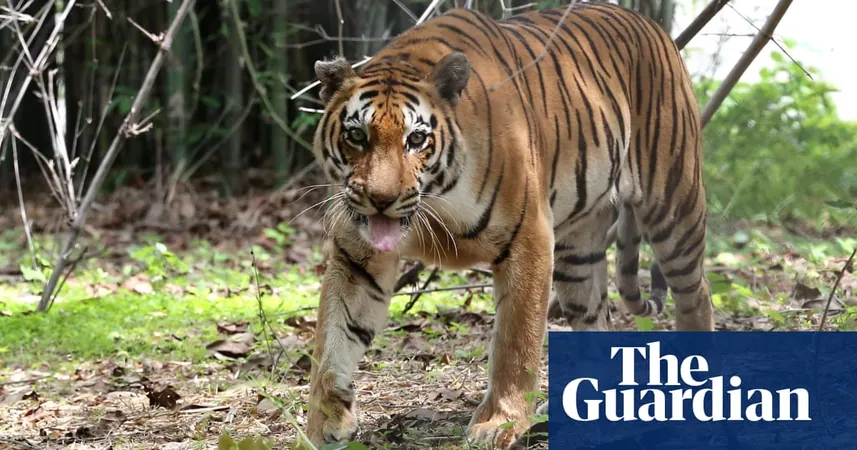
Devastating Outbreak: 20 Big Cats Fall Victim to Bird Flu at Washington Sanctuary
2024-12-25
Author: Jessica Wong
Introduction
In a shocking turn of events, a total of twenty big cats have tragically died after contracting avian influenza at the Wild Felid Advocacy Center in Shelton, Washington. This dire outbreak includes a Bengal tiger, four cougars, a lynx, and four bobcats, raising alarms about the severity of the bird flu's impact beyond avian populations.
Details of the Outbreak
The lifespan of these majestic animals, typically influenced by factors such as old age and habitat conditions, was abruptly cut short when the virulent strain, known as highly pathogenic avian influenza (HPAI), infiltrated the sanctuary between late November and mid-December. Mark Mathews, the center's director, expressed his despair, stating, "We’ve never had anything like this; they usually die basically of old age. Not something like this, it’s a pretty wicked virus."
Wider Implications
The implications of this outbreak are further amplified by the recent surge of bird flu cases across various livestock sectors in the United States, with poultry flocks encountering significant infection rates. Moreover, the virus has been found to affect domestic cats, with a severe case reported in a human being in Louisiana.
Sanctuary Measures and Response
Frighteningly, more than half of the wild cats present at the sanctuary were indicated to be afflicted by the virus as reported by the facility on social media. This announcement followed a temporary closure of the sanctuary aimed at containing an unknown illness plaguing some of the animals. The center has been diligently collaborating with federal, state, and county animal health officials since confirming the bird flu's presence.
Veterinary Efforts
In a heart-wrenching update, the center noted on Facebook that they were working alongside their veterinary team to address the devastating situation, emphasizing their strong biosecurity measures to safeguard the remaining cats and the public. Currently, only seventeen cats are left under their care as they investigate the virus's source, which includes measures like removing 8,000 pounds of food from storage and thoroughly disinfecting each habitat.
Broader Context and Concerns
The Washington Department of Fish and Wildlife has reported avian flu infections in numerous wild birds this fall, escalating concerns. Alarmingly, two cougars in a separate region were also confirmed to have the H5N1 strain. This news comes on the heels of an investigation by health officials in Los Angeles into three household cats presumed infected with bird flu, after the disease was confirmed in two other cats who tragically consumed recalled raw milk and later died.
Conclusion
This situation serves as a poignant reminder about the interconnectedness of wildlife, domestic animals, and human health, underscoring the critical need for ongoing vigilance and quick action in the face of emerging infectious diseases. The sanctuary's closure remains in effect until further notice as they fight to protect their remaining residents and navigate this unprecedented health crisis.



 Brasil (PT)
Brasil (PT)
 Canada (EN)
Canada (EN)
 Chile (ES)
Chile (ES)
 España (ES)
España (ES)
 France (FR)
France (FR)
 Hong Kong (EN)
Hong Kong (EN)
 Italia (IT)
Italia (IT)
 日本 (JA)
日本 (JA)
 Magyarország (HU)
Magyarország (HU)
 Norge (NO)
Norge (NO)
 Polska (PL)
Polska (PL)
 Schweiz (DE)
Schweiz (DE)
 Singapore (EN)
Singapore (EN)
 Sverige (SV)
Sverige (SV)
 Suomi (FI)
Suomi (FI)
 Türkiye (TR)
Türkiye (TR)